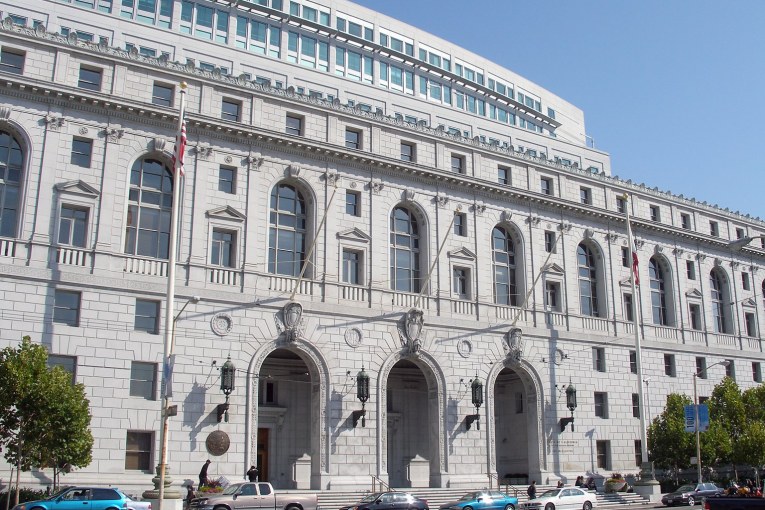

By Linhchi Nguyen
SAN FRANCISCO – The California Supreme Court Thursday reversed a Court of Appeal’s decision relating to Senate Bill 1437, ruling that a defendant convicted for second-degree murder under the natural and probable consequences theory is eligible to petition for reduced resentencing.
Defendant Joseph Gentile was convicted for second-degree murder after a jury decided that he “directly aided and abetted” someone in the commission of felony assault, in which the natural and probable consequence of which was death. Gentile then appealed his case, arguing that Senate Bill 1437 eliminates second-degree murder liability under a natural and probable consequences theory.
The Court of Appeals rejected Gentile’s argument multiple times, but the California Supreme Court ultimately reversed their judgment, and in agreement with Gentile’s appeal, remanded the court to affirm his second-degree murder conviction to any petition for relief that he may file.
In June 2014, Gentile was arrested after DNA evidence pointed to him to be involved in a murder that occurred inside a restaurant in Indio. The surveillance camera captured Gentile with the victim and the victim’s ex-wife, Saundra Roberts.
During the trial, there was conflicting testimony between the prosecution and the defense as to how the murder occurred. On one hand, Roberts testified that Gentile told her about getting into a fight with a man and that he “hurt him pretty bad” and “might have killed” him.
But according to Gentile, he was trying to protect Roberts from the victim when Roberts told Gentile that he had “been raping” her. He then punched the man several times, but it was Roberts who began hitting him with “what Gentile thought was a sledgehammer.” He tried to take the weapon away from Roberts several times, and he denied ever striking the man with a weapon.
At the end of the trial, the jury convicted Gentile of first-degree murder under the natural and probable consequences theory, which indicates that Gentile directly aided and abetted Roberts in a felony assault with a deadly weapon where the natural and probable consequence of which was death.
However, when Gentile first appealed, the Court of Appeals reversed his murder conviction after finding that it was “probably that the jury convicted the defendant on an unauthorized legal theory.” This is because the jury did not find that Gentile used a deadly or dangerous weapon in committing the crime, suggesting that the jury did not think he was the actual perpetrator.
As a result, the prosecution accepted a reduction of Gentile’s conviction to second-degree murder.
Gentile then filed for a second appeal, and this time, he argued that he was entitled to relief under Senate Bill 1437 which eliminated second-degree murder liability under a natural and probable consequences theory.
Prior to SB 1437, when a person aided and abetted a non-homicide crime that resulted in a murder, the natural and probable consequences doctrine allowed him or her to be convicted of murder without personally possessing malice aforethought (as in whether they had an intent to kill or killed with no “considerable provocation”).
So long as the direct perpetrator possessed malice, and the killing was a natural and probable consequence of the crime that the defendant aided or abetted, it did not matter whether the defendant intended to kill or acted with conscious disregard for human life.
When SB 1437 was passed in 2019, it amended the law of felony murder, barring conviction for first or second-degree murder under a natural and probable consequences theory. In addition, it makes personally possessing malice aforethought a necessary element of murder. Natural and probable consequences liability for murder contains no such requirement.
In addition to amending the law, SB 1437 provided a procedure for eligible defendants to petition to have their convictions vacated through the trial court. This procedure expressly allows for defendants who are convicted of second-degree murder to avail themselves on SB 1437’s ameliorative provisions.
Multiple times, the Court of Appeals rejected Gentile’s appeal and construed his argument to contend that SB 1437’s amendments “eliminate[d] all murder liability for aiders and abettors.” The court stated that Gentile’s conviction stands because “[a]t a minimum…[he] was granted a direct or active aider and abettor” of murder.
The California Supreme Court decided that the Court of Appeal was poorly positioned on a direct review to conclude that “defendant was, at a minimum an active aider-abettor who is not entitled to [vacate] his murder conviction,” especially without giving him the opportunity to offer “new or additional evidence” in a resentencing proceeding.
The CA Supreme Court noted that going forward, the parties agree that Gentile has made “a prima facie showing that he…is entitled to relief…the judgment of the Court of Appeal is thus reversed, and the matter is remanded to the court to affirm Gentile’s second-degree murder conviction to any petition for relief that he may file.”
 Linhchi Nguyen is a fourth year at UC Davis, double majoring in Political Science and English. She currently lives in Sacramento, California.
Linhchi Nguyen is a fourth year at UC Davis, double majoring in Political Science and English. She currently lives in Sacramento, California.
To sign up for our new newsletter – Everyday Injustice – https://tinyurl.com/yyultcf9
Support our work – to become a sustaining at $5 – $10- $25 per month hit the link: